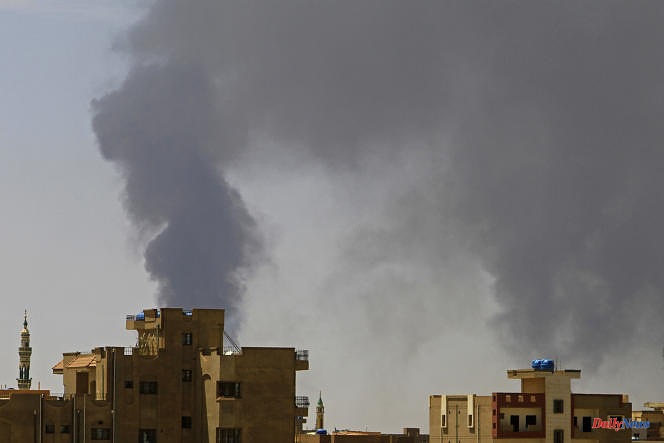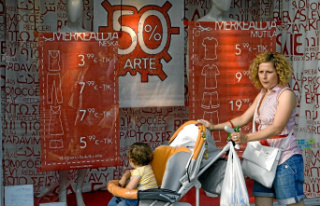Since the diplomats fled Khartoum, the doors of the embassies have been closed and many Sudanese find themselves trapped: their passports deposited for visas are inaccessible and their administrations, closed by the war, do not issue new ones.
Rami Badawi's family has been ready to leave Sudan for days. But without the passport of their eldest son, crossing the border is impossible and "they refuse to leave without me", told AFP this 29-year-old engineer who had deposited his passport at the French embassy on April 4. He was to recover it on the 17th, stamped with a work visa, but the war which broke out on April 15 between the two rival generals, Abdel Fattah Al-Bourhane and Mohammed Hamdane Daglo, decided otherwise.
With the six other members of his family, he tries to survive in Khartoum, under the bombs, without water or electricity. "The embassy never contacted me and didn't respond to the two emails I sent," he said bitterly. I am the only one from Sudan and one of only two from Africa to have passed the exams to be trained in France in the handling of a state-of-the-art tractor… I imagine that will never happen. ".
Lost bullets
Iqbal Belah, 65, was to benefit from "family reunification" with her husband and sick son in Germany. Today, "with the embassy closed and without a passport", she does not know if she will be able to join them. In the immediate future, she wants to get out of her neighborhood "a few meters from the fighting". "My 7-year-old granddaughter is shaking with every bombardment. With her father, we hold her tight against us to reassure her, but nothing helps,” she says.
Like the 5 million inhabitants of Khartoum, Ramah Essam, 30, lives holed up in his home with his family hoping to avoid the stray bullets that can penetrate walls and windows at any moment. This gastroenterologist was to go to Johannesburg "for training", before the South African embassy closed. “The first few days, we were in shock. Communications were cut off, we had no water or electricity and when it partially came back on April 18, I tried to contact the South African Embassy,” he said.
But as he saw the first evacuations of foreigners on television, he quickly realized that his calls would go unanswered. “There was no announcement, no call, he gets carried away. All embassies have local employees, why didn't they give them our passports to give back to us later? »
The Chinese exception
Asked on Twitter by trapped Sudanese like Dr. Essam, the Dutch Ministry of Foreign Affairs responds "deeply regret the situation". “We were forced to close the embassy,” he continues. Unfortunately, this means that we do not have access to your passport. We advise you to request a new one from the local authorities. »
But renewing your passport is now doubly impossible. "If we go out, we put our lives in danger," says Rami Badawi. And even when presenting himself to an administration, probably partly destroyed by the fighting, no official works there anymore, by order of the State. For Emma DiNapoli, a lawyer in international humanitarian law, "complaints could be brought before the European Court of Human Rights and governments could be held accountable". Because "international humanitarian law guarantees freedom of movement," she told AFP.
“What is striking is that the governments involved have so far taken no action,” Ms. DiNapoli continues. There is one exception: the Chinese Embassy, which has chosen to deliver the passports to their owners via its local employees. On Twitter, she shared two numbers. When AFP called, an employee invited her to report to the chancellery. But to get there, you have to be prepared to face fire from air force planes and paramilitary machine guns.












